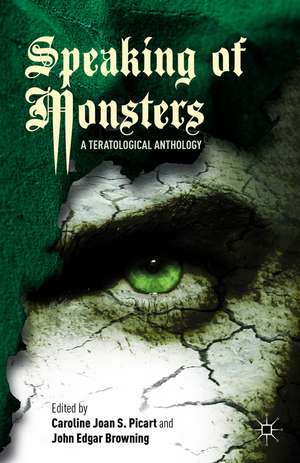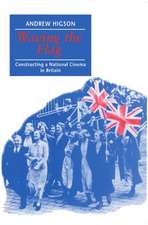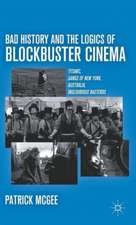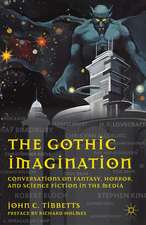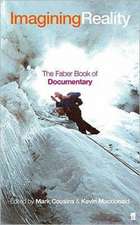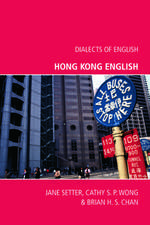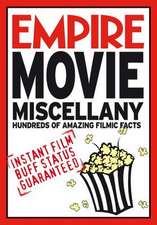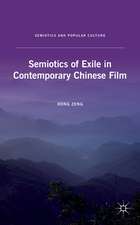Speaking of Monsters: A Teratological Anthology
Autor Caroline Joan S. Picart, John Edgar Browningen Limba Engleză Hardback – 3 iul 2012
| Toate formatele și edițiile | Preț | Express |
|---|---|---|
| Paperback (1) | 390.84 lei 6-8 săpt. | |
| Palgrave Macmillan US – 10 dec 2015 | 390.84 lei 6-8 săpt. | |
| Hardback (1) | 703.85 lei 6-8 săpt. | |
| Palgrave Macmillan US – 3 iul 2012 | 703.85 lei 6-8 săpt. |
Preț: 703.85 lei
Preț vechi: 828.05 lei
-15% Nou
Puncte Express: 1056
Preț estimativ în valută:
134.70€ • 146.26$ • 113.15£
134.70€ • 146.26$ • 113.15£
Carte tipărită la comandă
Livrare economică 22 aprilie-06 mai
Preluare comenzi: 021 569.72.76
Specificații
ISBN-13: 9780230114500
ISBN-10: 0230114504
Pagini: 326
Ilustrații: XVI, 326 p.
Dimensiuni: 155 x 235 x 23 mm
Greutate: 0.61 kg
Ediția:2012
Editura: Palgrave Macmillan US
Colecția Palgrave Macmillan
Locul publicării:New York, United States
ISBN-10: 0230114504
Pagini: 326
Ilustrații: XVI, 326 p.
Dimensiuni: 155 x 235 x 23 mm
Greutate: 0.61 kg
Ediția:2012
Editura: Palgrave Macmillan US
Colecția Palgrave Macmillan
Locul publicării:New York, United States
Cuprins
Introduction: On Monstrosity and Multiculturalism - Caroline Joan ('Kay') S. Picart and John Edgar Browning PART 1: GENERAL THEORIES OF MONSTROSITY Monster Culture (Seven Theses) - Jeffrey Jerome Cohen Dread, Taboo, and The Thing (1982): Toward a Social Theory of the Horror Film - Stephen Prince Nightmare and the Horror Film: The Symbolic Biology of Fantastic Beings - Noël Carroll Our Vampires, Our Neighbors - Ken Gelder 'Psychological Thriller': Dead of Night (1945), British Film Culture, and the 1940s Horror Cycle - Mark Jancovich PART 2: TERATOLOGIES OF NATIONALITY AND RACE Monsters in the Literary Traditions of Asia: A Critical Appraisal - Andrew Hock-Soon Ng Slayer as Monster in Blood+ (2005-2006) and Buffy the Vampire Slayer (1997-2003) - Margaret L. Carter 'Shapeless Deformity': Monstrosity, Visibility, and Racial Masquerade in Thomas Grattan's Cagot's Hut (1823) - Daniel Novak PART 3: IN BETWEEN FEAR AND DESIRE Apt Pupil (1998): The Hollywood Nazi-As-Monster Flick - Caroline Joan ('Kay') S. Picart and David Frank Demons Driven: Religious Teratologies - Jason C. Bivins An Age of Mechanical Destruction: Power Tools and the Monstrous in The Texas Chain Saw Massacre Films - Ian Conrich PART 4: QUEER THEORY AND BOUNDARY CROSSINGS 'Way Too Gay to Be Ignored?': The Production and Reception of Queer Horror Cinema in the Twenty-First Century - Harry Benshoff Seed of Chucky: Transbiology and the Horror Flick - Judith ('Jack') Halberstam PART 5: CRIMINOLOGY, LAW, AND TERATOLOGIES: BETWEEN THE REAL AND THE REEL Stage Four: Virulency - Lonnie H. Athens Profiling the Terrorist as a Mass Murderer - Caroline Joan ('Kay') S. Picart and Cecil E. Greek What Makes Stalking Monsters So Monstrous, and How to Survive Them? - Ôrît K?mîr Race and Serial Killing in the Media: The Case of Wayne Williams - Caroline Joan ('Kay') S. Picart PART 6: THE BIOLOGICAL MONSTROUS AND GENDER: THE HUMAN-ANIMAL-MACHINE DIVIDES ''Nature Abhors Normality': Theories of the Monstrous from Aristotleto The X-Files (1993-2002) - Kathleen Long Monster Spawn of Animal Experimentation in the Early Work of H. G. Wells: On the Containment of Psychopathic Violence as Preliminary to the Onset of the Capacity for Mourning - Laurence A. Rickels Why Is the Tension So High? The Monstrous Feminine in (Post)Modern Slasher Films - Dejan Ognjanovi? Blood and Bitches: Sexual Politics and the Female Lycanthrope in Young Adult Fiction - June Pulliam PART 7: TERATOLOGIES AND ETHICS The Queer Ethics of Monstrosity - Patricia MacCormack Reopening the Question of the Human and the Animal - Dominick LaCapra Where Reality and Fantasy Meet and Bifurcate: Holocaust Themes in Pan's Labyrinth (2006), X-Men (2000), and V (1983) - Caroline Joan ('Kay') S. Picart, John Edgar Browning, and Carla María Thomas
Recenzii
"This book is a must-read for students and scholars of teratology, monsters, the fantastic, and the detested other. Spanning a fascinating gulf of disciplines and genres, the authors illustrate just how interconnected we are with the monsters in our midst and the extent to which our understandable desire to define ourselves in opposition to the monstrous both creates and destroys the barriers between the human and the other. This book will change the way you think about crime, victimhood, knowledge, the normal, and our own place in the universe. From Dracula to the Holocaust, from gender to disability, this book challenges our own belief in the possibility of self-knowledge and questions the foundations of our self-defined humanity.' - Danaya C. Wright, Clarence J. TeSelle Professor of Law, Levin College of Law, University of Florida
"All too often topics are betrayed in their treatment - creativity is discussed unimaginatively, art is approached unartfully or even artlessly, philosophy itself taken up thoughtlessly (at least without sufficiently sustained, probing thoughtfulness). Not so in this instance. Indeed, the category of monstrosity is itself monstrous. It is at once dependent upon traditional distinctions between the normal and a forever shifting array of opposites and in conflict with those historically entrenched dichotomies. The essays in this volume exhibit in detail the monstrous - in the sense of both the frighteningly huge and fiercely unsettling- force of this philosophical category. They do so in reference to a broad spectrum of cultural phenomena. The editors' finely crafted introduction however provides a useful map to this vast terrain.' - Vincent Colapietro, Liberal Arts Research Professor of Philosophy, The Pennsylvania State University
'This collection of essays offers more than a unique contribution to social theory - it is a comprehensive framework for understanding how humans construct otherness. The work is critical for law since judges, police, and other legal actors repeatedly construct the criminal as monster, which lays the foundation for punishment that knows no bounds, including death. In an age of mass incarceration and fears of terrorism, this work is as timely as it is fascinating." - SpearIt, Assistant Professor of Law, Saint Louis University, School of Law
"All too often topics are betrayed in their treatment - creativity is discussed unimaginatively, art is approached unartfully or even artlessly, philosophy itself taken up thoughtlessly (at least without sufficiently sustained, probing thoughtfulness). Not so in this instance. Indeed, the category of monstrosity is itself monstrous. It is at once dependent upon traditional distinctions between the normal and a forever shifting array of opposites and in conflict with those historically entrenched dichotomies. The essays in this volume exhibit in detail the monstrous - in the sense of both the frighteningly huge and fiercely unsettling- force of this philosophical category. They do so in reference to a broad spectrum of cultural phenomena. The editors' finely crafted introduction however provides a useful map to this vast terrain.' - Vincent Colapietro, Liberal Arts Research Professor of Philosophy, The Pennsylvania State University
'This collection of essays offers more than a unique contribution to social theory - it is a comprehensive framework for understanding how humans construct otherness. The work is critical for law since judges, police, and other legal actors repeatedly construct the criminal as monster, which lays the foundation for punishment that knows no bounds, including death. In an age of mass incarceration and fears of terrorism, this work is as timely as it is fascinating." - SpearIt, Assistant Professor of Law, Saint Louis University, School of Law
Notă biografică
Lonnie Athens is a professor in the Department of Criminal Justice at Seton Hall University.Jason C. Bivins is an associate professor and the associate department head in the Department of Philosophy and Religious Studies at North Carolina State University.Harry M. Benshoff is an associate professor of Radio, Television, and Film at the University of North Texas. Noël Carroll is Distinguished Professor of Philosophy at the Graduate Center of the City University of New York and one of the leading philosophers of art and aesthetics in the US. Margaret L. Carter is a writer and scholar of horror. Jeffrey Jerome Cohen is a professor of English and the director of the Medieval and Early Modern Studies Institute (MEMSI) at the George Washington University. Ian Conrich is a fellow in the Department of Literature, Film, and Theatre at the University of Essex. David Frank is a professor of Rhetoric at the University of Oregon and the academic dean of the Robert D. Clark Honors College. Ken Gelder is a professor of English at the University of Melbourne.Cecil Greek is an associate professor of Sociology at University of South Florida Polytechnic.Judith ('Jack') Halberstam is a professor of English, American Studies and Ethnicity, and Gender Studies at the University of Southern California. Mark Jancovich is a professor of Film and Television Studies at the University of East Anglia. Ôrît K?mîr is a professor of Law, Cultureand Gender at the Peres Law School in Israel. Dominick LaCapra is Bryce & Edith M. Bowmar Professor in Humanistic Studies at Cornell University. Kathleen Long is a professor of French in the Department of Romance Studies at Cornell University. Patricia MacCormack is a reader in English, Communication, Film and Media at Anglia Ruskin University, Cambridge. Andrew Hock-Soon Ng is a senior lecturer in Literature at Monash University Malaysia.Daniel A Novak is an associate professor of English at Louisiana State University. Dejan Ognjanovi? received his PhD from the University of Belgrade and was a Fulbright Scholar at the University of California, Berkeley.Stephen Prince is a professor of Theatre and Cinema at Virginia Tech. June Pulliam teaches courses in horror and adolescent literature at Louisiana State University. Laurence A. Rickels is a professor of art and theory at the Academy of Fine Arts in Karlsruhe.David J. Skal is an author and an annual visiting lecturer in popular literature at Trinity College.Carla María Thomas is a Henry M. MacCracken Fellow at New York University.
